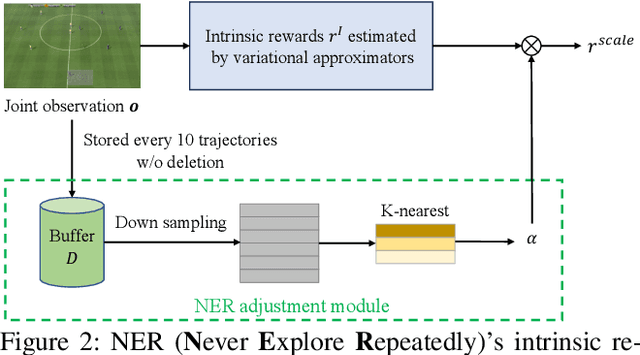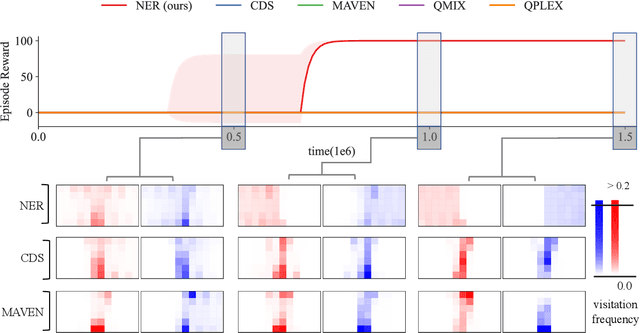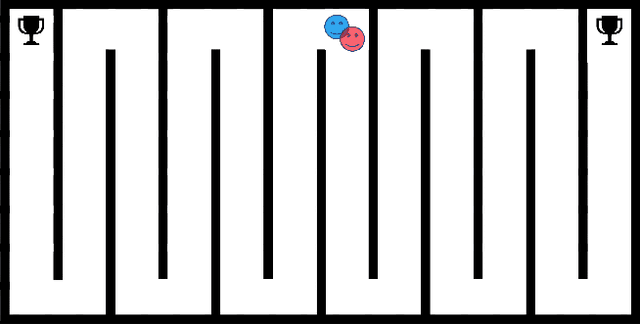Never Explore Repeatedly in Multi-Agent Reinforcement Learning
Paper and Code
Aug 19, 2023



In the realm of multi-agent reinforcement learning, intrinsic motivations have emerged as a pivotal tool for exploration. While the computation of many intrinsic rewards relies on estimating variational posteriors using neural network approximators, a notable challenge has surfaced due to the limited expressive capability of these neural statistics approximators. We pinpoint this challenge as the "revisitation" issue, where agents recurrently explore confined areas of the task space. To combat this, we propose a dynamic reward scaling approach. This method is crafted to stabilize the significant fluctuations in intrinsic rewards in previously explored areas and promote broader exploration, effectively curbing the revisitation phenomenon. Our experimental findings underscore the efficacy of our approach, showcasing enhanced performance in demanding environments like Google Research Football and StarCraft II micromanagement tasks, especially in sparse reward settings.
 Add to Chrome
Add to Chrome Add to Firefox
Add to Firefox Add to Edge
Add to Edge